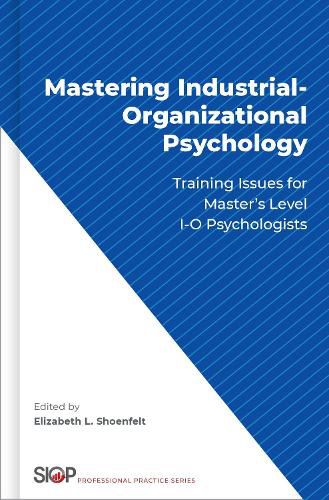Readings Newsletter
Become a Readings Member to make your shopping experience even easier.
Sign in or sign up for free!
You’re not far away from qualifying for FREE standard shipping within Australia
You’ve qualified for FREE standard shipping within Australia
The cart is loading…






Industrial-Organizational (I-O) psychology, the application of science in the workplace to create a better experience for individuals and organizations, has been identified by the Department of Labor as one of the fastest growing occupations in the nation. This volume brings together faculty from top-ranked I-O master’s programs to provide best practices and discussions of important topics for the training of master’s level I-O psychologists, including areas of career practice, applying to graduate school, applied experiences needed to prepare graduates for the workplace, methods of teaching and considerations for faculty in I-O master’s programs, and consulting in organizations as a component of graduate education. This book will be of critical interest to I-O master’s faculty, faculty advising undergraduates for graduate school, and students considering careers in I-O psychology.
$9.00 standard shipping within Australia
FREE standard shipping within Australia for orders over $100.00
Express & International shipping calculated at checkout
Industrial-Organizational (I-O) psychology, the application of science in the workplace to create a better experience for individuals and organizations, has been identified by the Department of Labor as one of the fastest growing occupations in the nation. This volume brings together faculty from top-ranked I-O master’s programs to provide best practices and discussions of important topics for the training of master’s level I-O psychologists, including areas of career practice, applying to graduate school, applied experiences needed to prepare graduates for the workplace, methods of teaching and considerations for faculty in I-O master’s programs, and consulting in organizations as a component of graduate education. This book will be of critical interest to I-O master’s faculty, faculty advising undergraduates for graduate school, and students considering careers in I-O psychology.